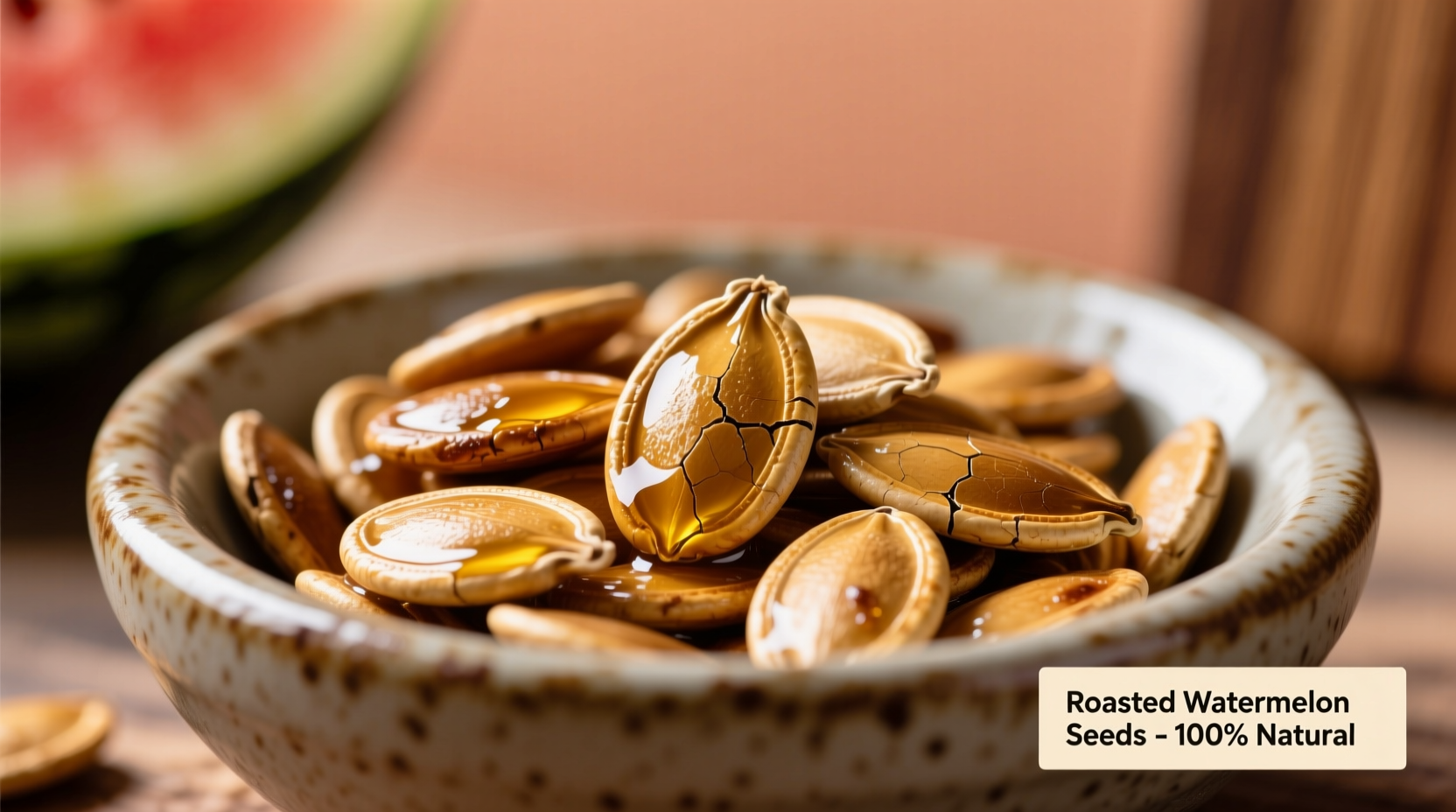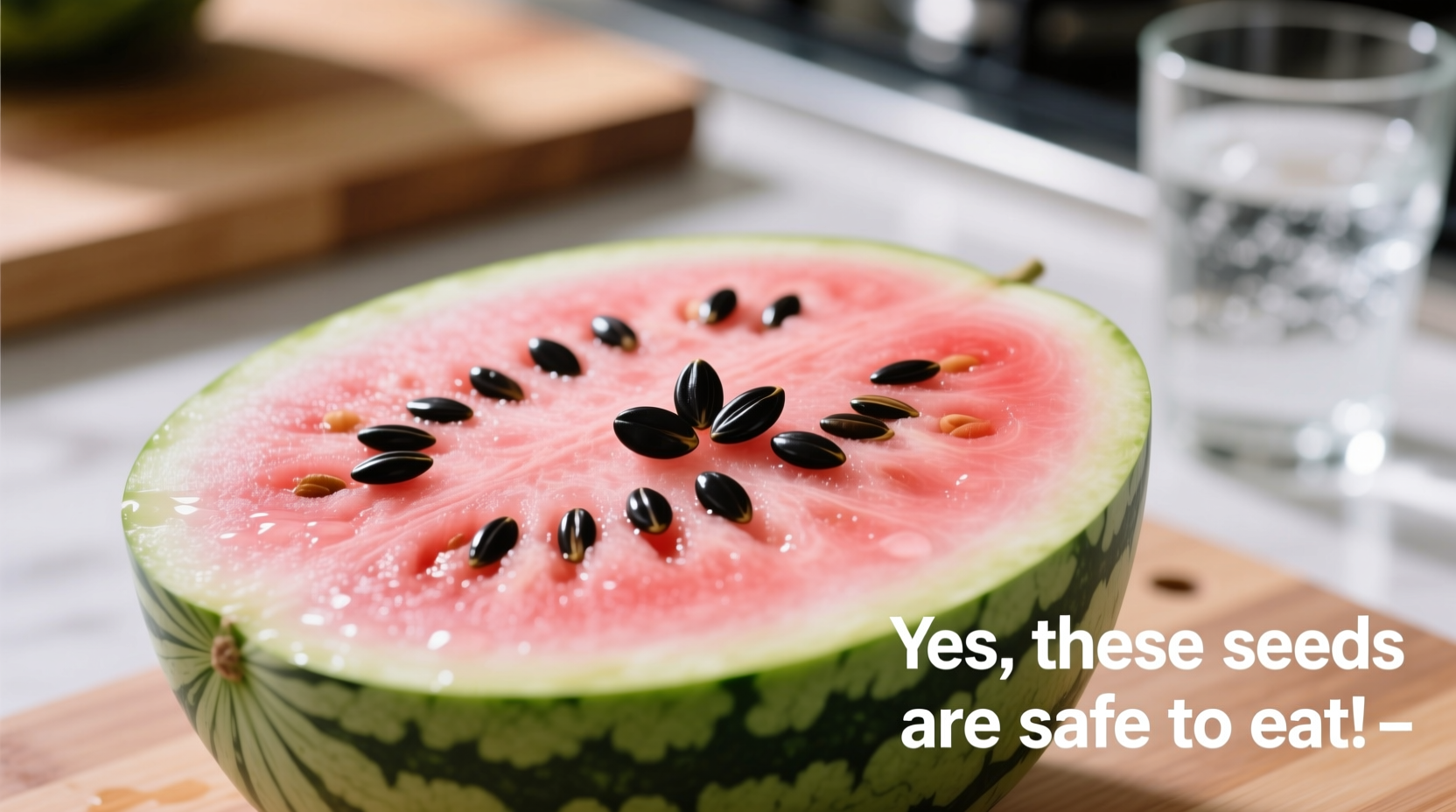Many people instinctively spit out watermelon seeds, believing they're unsafe or could cause health issues. But the truth about is it ok to eat seeds in watermelon might surprise you. Watermelon seeds aren't just harmless—they're actually a nutritional powerhouse that most of us waste without realizing their benefits.
Understanding Watermelon Seeds: Safety First
Let's address the most common concern head-on: watermelon seeds contain no toxins harmful to humans. Unlike apple or cherry pits, which contain amygdalin (a compound that can convert to cyanide), watermelon seeds are completely safe to consume. The myth that seeds can grow inside your stomach is biologically impossible—your digestive system breaks them down efficiently.
There are two types of watermelon seeds you might encounter:
- Black, mature seeds: Fully developed, harder texture, higher nutritional content
- White, immature seeds: Softer, often found in seedless varieties, still edible but less nutrient-dense
Nutritional Powerhouse in a Tiny Package
Watermelon seeds deserve recognition as a superfood. Just one ounce (28g) of dried watermelon seeds contains:
| Nutrient | Watermelon Seeds | Sunflower Seeds | Pumpkin Seeds |
|---|---|---|---|
| Protein | 8g | 6g | 9g |
| Magnesium | 140mg (33% DV) | 128mg (31% DV) | 150mg (36% DV) |
| Iron | 1.8mg (10% DV) | 1.8mg (10% DV) | 2.5mg (14% DV) |
| Healthy Fats | 7g | 14g | 13g |
According to the USDA FoodData Central, watermelon seeds provide substantial amounts of magnesium (crucial for muscle function), iron (supports blood health), zinc (boosts immunity), and B vitamins. They're also rich in healthy monounsaturated and polyunsaturated fats that support heart health.

How to Prepare Watermelon Seeds for Maximum Benefit
While you can eat watermelon seeds raw straight from the fruit, proper preparation enhances both flavor and nutrition:
- Harvesting: Scoop seeds from fresh watermelon, rinse thoroughly to remove pulp
- Drying: Spread on paper towel for 1-2 days or use low-temperature oven (170°F for 2 hours)
- Roasting: Toss with olive oil and sea salt, roast at 325°F for 15-20 minutes until crisp
Roasting triggers the Maillard reaction, which not only improves flavor but also increases antioxidant availability. Research published in the Journal of Food Science and Technology shows that moderate roasting (up to 300°F) preserves most nutrients while enhancing digestibility.
Special Considerations for Different Situations
While watermelon seeds are generally safe for everyone, certain contexts require attention:
- For children: Whole seeds pose minimal choking risk for older children, but supervise younger kids. Consider grinding seeds into powder for toddlers
- Digestive sensitivity: Those with IBS or digestive disorders may want to start with small portions, as high fiber content could cause temporary discomfort
- Seedless watermelon clarification: "Seedless" varieties actually contain soft, edible white seeds—not genetically modified but bred through natural cross-pollination
Creative Ways to Enjoy Watermelon Seeds
Don't just toss those seeds—transform them into delicious additions to your diet:
- Simple snack: Roasted with sea salt and a pinch of smoked paprika
- Salad topper: Adds crunch to green salads or watermelon-feta combinations
- Smoothie booster: Blend raw seeds into morning smoothies for extra protein
- Homemade trail mix: Combine with dried watermelon flesh, nuts, and dark chocolate
Professional chefs like Antonio Rodriguez often recommend toasting watermelon seeds with cumin and coriander for a Middle Eastern-inspired flavor profile that complements grilled meats and roasted vegetables.
When to Remove Watermelon Seeds
While eating seeds is perfectly fine, there are situations where removing them makes sense:
- When making smooth soups or purees where texture matters
- For certain desserts where visual presentation is important
- If serving to very young children who might choke
- When using watermelon in cocktail garnishes
But for everyday consumption, leaving seeds in actually increases the nutritional value of your watermelon experience. As food scientist Dr. Lisa Harper from Cornell University notes, "We've been conditioned to view seeds as waste, but they often contain concentrated nutrients that benefit from the fruit's ripening process."











 浙公网安备
33010002000092号
浙公网安备
33010002000092号 浙B2-20120091-4
浙B2-20120091-4